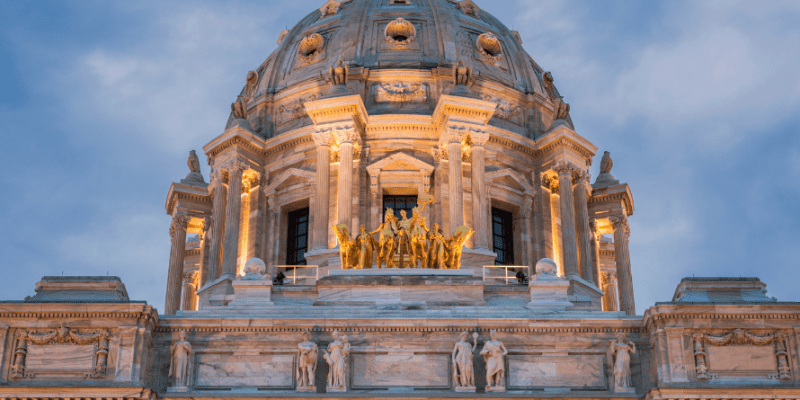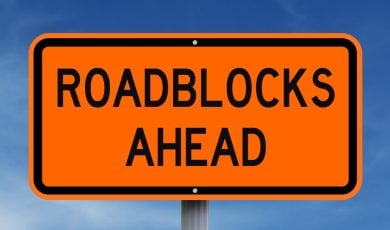Minnesota sports betting legislation passed the House on Thursday. But state senators warn Minnesotans not to get their hopes up on legalizing sports wagering this year.
The bill passed by the House gives exclusivity on Minnesota sports betting to Native American tribes located in the state.
After getting mixed reviews while going through eight committees, HF 778 got lukewarm support on the House floor. It passed 70-57 with only minor amendments related to compulsive gambling treatment and advertising limitations.
The many voting in opposition illustrates the issues faced in the Senate, which hasn’t addressed sports betting this year.
“Unfortunately, this bill is dead,” House Minority Leader Kurt Daudt said.
“Pass, don’t pass. It doesn’t matter today. The Senate has already vocally said a couple of times that they’re not going to pass their bill and send this into conference committee.”
Minnesota’s legislative session ends Monday, May 23.
Minnesota House sports betting bill details
Minnesota sports betting legislation went nowhere due to tribal opposition in past years.
This year, Minnesota tribes embraced online sports betting for the first time. Stephenson worked with the tribes to craft language they wouldn’t oppose.
Key details include:
- Minnesota’s 11 tribes can offer brick-and-mortar sports betting through compact amendments and statewide mobile sports betting with one online platform each
- Tribes pay nothing for the master license and only a $2,125 sublicensing fee
- Sports betting platform operators pay an application fee of $6,000 and a license fee of $38,250, renewable annually for $8,500
- Minimum age requirement of 21 years old to wager on sports
- In addition to professional sports, it authorizes wagering on college sports and eSports
- Taxes online wagers at a 10% rate. The state doesn’t tax bets placed on tribal lands
- After paying for regulatory costs, the bill distributes 50% of tax revenue to the Minnesota Amateur Sports Commission and 50% to a compulsive gambling treatment program
- The Minnesota Amateur Sports Commission will administer grants promoting participation in youth sports in areas with a high rate of juvenile crime
It’s unusual for a state legalizing sports betting to disburse all the tax revenue. With a $9 billion surplus and a modest $12 million in tax revenue projected at maturity, Stephenson contends that regulating sports betting is not about bringing money to the state.
“This is not about generating revenue,” Stephenson said.
“All of the funds we generate from this go to related activities – the consumer protections and licensing and regulation, the problem gaming aspect and then youth sports.”
Minnesota Senate issues with sports betting
Sen. Karla Bigham was part of a press conference Minnesota Senators held in February to announce sports betting legislation. But the issue didn’t even get a committee hearing in the Senate over the past three months.
“It’s disappointing but I’m not panicked yet,” Bigham told PlayUSA.
“There’s still enough time to get it done. I think the House sending the bill over probably starts another conversation.”
Bigham said there are two issues that will make it difficult for sports betting to get through the Minnesota Senate.
Many religiously conservative Republicans oppose the bill as an expansion of gambling.
Then others among Democrats and Republicans support Minnesota’s horse racing industry and don’t want to pass a sports betting bill that excludes Minnesota’s two racetracks. Sen. Roger Chamberlain included the racetracks in the Senate legislation.
Senate Majority Leader Jeremy Miller told local Fox-9 political reporter Theo Keith that the sports betting bill is “running out of time” and that “there’s not support in the Senate to do sports betting for tribal casinos only.”
On the House floor, Rep. Nolan West spoke up for including horse racetracks:
“This bill needs a lot of work. Right now it gives tribes exclusive control over the mobile gaming aspect, and the tribes certainly should be included in this bill. They should have a serious say. But this leaves out racetracks, for example. In Iowa, when they legalized sports betting, the horse racetracks lost about 40% of their revenue. And, in Minnesota, horse racetracks have around half a billion dollars in economic impact. If they lose that revenue, they would be doomed.”
Horse racing inclusion could bring Senate passage
Minnesota tribes oppose the inclusion of Minnesota’s two racetracks — Canterbury Park in Shakopee and Running Aces Casino, Hotel & Racetrack in Columbus.
Bigham said that if Minnesota’s Indian tribes would just allow the two racetracks to participate, she thinks it would be enough to overcome opposition from the morally opposed Republicans in the Senate.
“If there was an agreement with those two stakeholders, absolutely it would go forward with a lot of bipartisan support,” Bigham said.
“It’s 100% it would pass.”
A local news station KSTP/SurveyUSA poll conducted in April showed that 64% of Minnesotans support legalizing sports betting. Only 17% oppose it.
The poll also showed that only 7% of respondents wanted Minnesota’s Indian casinos to get a monopoly on sports betting. When presented as sports betting for tribal casinos and horse racetracks, 57% of those polled were in support.
“Minnesotans want us to have this conversation,” said House sponsor Zach Stephenson, who cited the polling.
“They want this to be legal. This is a step in the right direction.”








